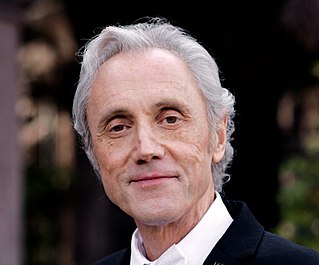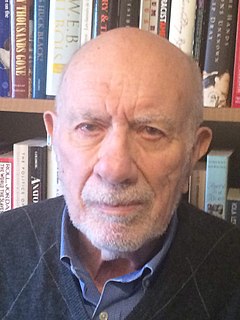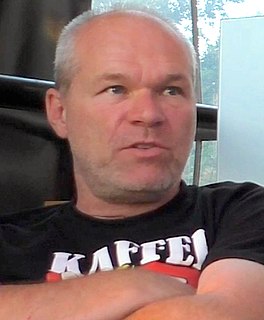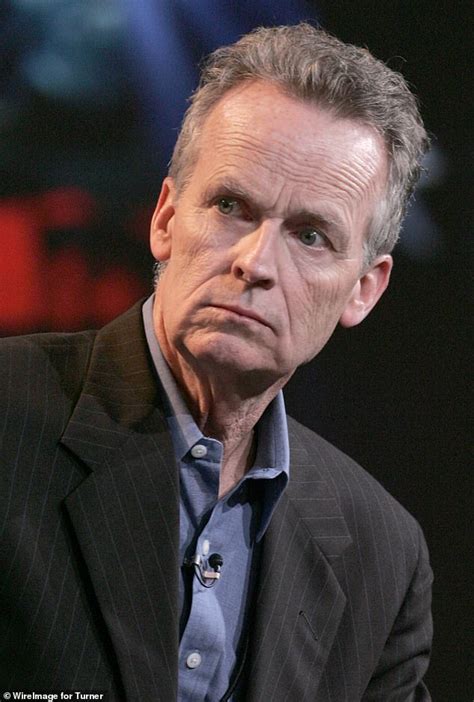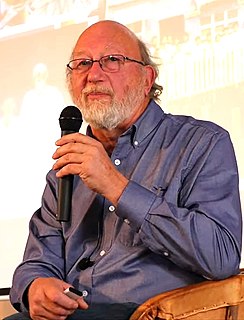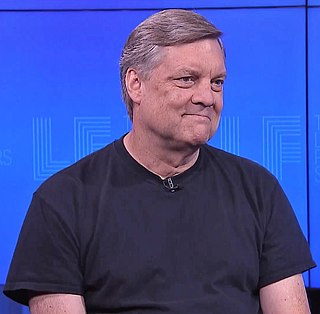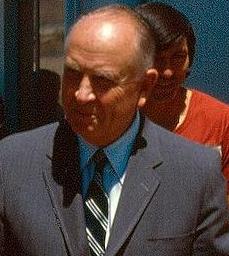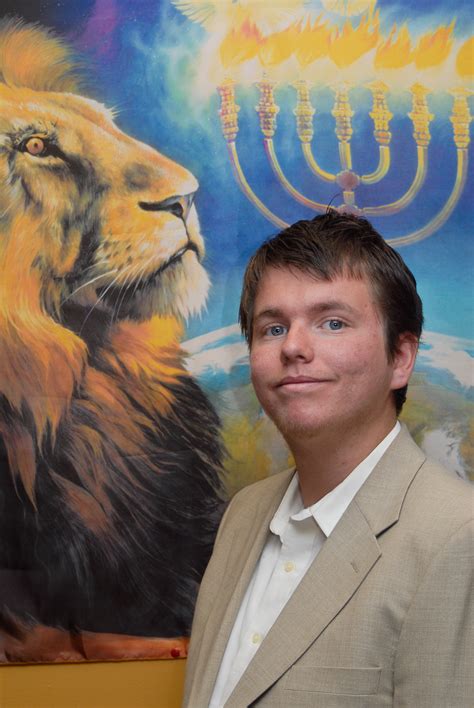Top 1200 Moral Courage Quotes & Sayings - Page 16
Explore popular Moral Courage quotes.
Last updated on April 22, 2025.
We have never understood why men mount the heads of animals and hang them up to look down on their conquerers. Possibly it feels good to these men to feel superior to animals, but does it not seem that if they were sure of it they would not have to prove it? Often a man who is afraid must constantly demonstrate his courage and, in the case of the hunter, must keep a tangible record of his courage.
I am not a courageous person by nature. I have simply discovered that, at certain key moments in this life, you must find courage in yourself, in order to move forward and live. It is like a muscle and it must be exercised, first a little, and then more and more. All the really exciting things possible during the course of a lifetime require a little more courage than we currently have. A deep breath and a leap.
Hence the sterile, uninspiring futility of a great many theoretical discussions of ethics, and the resentment which many people feel towards such discussions: moral principles remain in their minds as floating abstractions, offering them a goal they cannot grasp and demanding that they reshape their souls in its image, thus leaving them with a burden of undefinable moral guilt.
I am less affected by their heroism who stood up for half an hour in the front line at Buena Vista, than by the steady and cheerful valor of the men who inhabit the snow-plow for their winter quarters; who have not merely the three-o'-clock-in-the-morning courage, which Bonaparte thought was the rarest, but whose courage does not go to rest so early, who go to sleep only when the storm sleeps or the sinews of their iron steed are frozen.
The moral absolutes rest upon God's character. The moral commands He has given to men are an expression of His character. Men as created in His image are to live by choice on the basis of what God is. The standards of morality are determined by what conforms to His character, while those things which do not conform are immoral.
Above all, do not give up your moral and political autonomy by accepting in somebody else's terms the illiberal practicality of the bureaucratic ethos or the liberal practicality of the moral scatter. Know that many personal troubles cannot be solved merely as troubles, but must be understood in terms of public issues and in terms of the problems of history making.
In ancient times, any man rising up above the common people tried to shape his life according to his principles; it is no longer like than now; it is (because) for the ancients, moral was a principle of inner life, whereas in our days, most of the time one is content to adhere to an official moral, that we recognize in theory, but that one does not care to put into practice.
Moral certainty is always a sign of cultural inferiority. The more uncivilized the man, the surer he is that he knows precisely what is right and what is wrong. All human progress, even in morals, has been the work of men who have doubted the current moral values, not of men who have whooped them up and tried to enforce them. The truly civilized man is always skeptical and tolerant.
I believe our task is to develop a moral and aesthetic imagination deep enough and wide enough to encompass the contradictions of our time and history, the tremendous loss and tragedy as well as greatness and nobility, an imagination capable of recognizing that where there is light there is shadow, that out of hubris and fall can come moral regeneration, out of suffering and death, resurrection and rebirth.
There is, however, a moral basis for the vegetarian diet for which the indeterminate value of an animal's life takes on irrelevance. And that moral basis is a concern for the environment, a value as absolute as the value we all place on human life, since humanity will not survive for long on a poisoned planet. To be an environmentalist who happens to eat meat is like being a philanthropist who doesn't happen to give to charity.
It is in the whole process of meeting and solving problems that life has meaning. Problems are the cutting edge that distinguishes between success and failure. Problems call forth our courage and our wisdom; indeed, they create our courage and our wisdom. It is only because of problems that we grow mentally and spiritually. It is through the pain of confronting and resolving problems that we learn.
While theoretically a person may block God out, logically there will be a breakdown because ultimately all enunciation implies a moral doctrine of some kind. And if that moral doctrine is not absolute then the definer himself becomes undefined. That's what we are living with - an undefined definer giving us definitions for our course, and we are being trapped in the quicksand of the absence of objective truth.
I don't have the slightest interest in gold. I like understanding what works and what doesn't in human systems. To me that's not optional; that's a moral obligation. If you're capable of understanding the world, you have a moral obligation to become rational. And I don't see how you become rational hoarding gold. Even if it works, you're a jerk.
Natural good is' so intimately connected with moral good, and natural evil with moral evil, that I am as certain as if I heard a voice from heaven proclaim it, that God is on the side of virtue. He has learnt much, and has not lived in vain, who has practically discovered that most strict and necessary connection, that does and will ever exist between vice and misery, and virtue and happiness.
Morality is neither rational nor absolute nor natural. World has known many moral systems, each of which advances claims universality; all moral systems are therefore particular, serving a specific purpose for their propagators or creators, and enforcing a certain regime that disciplines human beings for social life by narrowing our perspectives and limiting our horizons.
... these great improvements of modern times are blessings or curses on us, just in the same ratio as the mental, moral, and religious rule over the animal; or the animal propensities of our nature predominate over the intellectual and moral. The spider elaborates poison from the same flower, in which the bee finds materials out of which she manufactures honey.
People talk about the idea of special relationships, that is, the morality only really binds people who stand in some kind of contractual relationship with each other but in fact if you take that seriously as a criteria of when we have a moral relationship then it's hard to see why we would have moral obligations to strangers for example or people who live across the sea from us but yet, every decent person believes that we do.
There is seemingly no biological benefit to acting with conscience; if there were, only moral individuals would survive and procreate. Sadly, we know that's not true. The benefit of conscience is that you won't suffer guilt (private) or shame (public), and that by your own self-imposed definition, you are a moral human, a special kind of animal who takes unique pride in elevating him/herself above the termites.
For the far higher task of teaching fortitude and patience I was never fool enough to suppose myself qualified, nor have I anything to offer my readers except my conviction that when pain is to be borne, a little courage helps more than much knowledge, a little human sympathy more than much courage, and the least tincture of the love of God more than all.
Wherever moral ambition exists, there right exists. And moral ambition itself must be presumed present in subconsciousness, even when the conscious self seems to reject it, so long as society has resources for bringing it into action; in much the same way that the life-saver presumes life to exist in the drowned man until he has exhausted his resources for recovering respiration.
Science is a magnificent force, but it is not a teacher of morals. It can perfect machinery, but it adds no moral restraints to protect society from the misuse of the machine. It can also build gigantic intellectual ships, but it constructs no moral rudders for the control of storm tossed human vessel. It not only fails to supply the spiritual element needed but some of its unproven hypotheses rob the ship of its compass and thus endangers its cargo.
Many people have written about the economic meaning of globalization; in One World Peter Singer explains its moral meaning. His position is carefully developed, his tone is moderate, but his conclusions are radical and profound. No political theorist or moral philosopher, no public official or political activist, can afford to ignore his arguments.
Moral theory develops from the divine command theory of medieval Christian philosophy, mixed up with a bit of ancient pagan virtue theory, to the purely secular moral sentiment and interpersonal reaction theories of Smith and Hume, to Kant's attempt to restore command theory but with something supersensible in the individual rather than God as the source of authority.
The doctrine that might makes right has covered the earth with misery. While it crushes the weak, it also destroys the strong. Every deceit, every cruelty, every wrong, reaches back sooner or later and crushes its author. Justice is moral health, bringing happiness, wrong is moral disease, bringing mortal death.
I wish I hadn't worked so hard; I wish I'd had the courage to live a life true to myself, not the life others expected of me; I wish I'd had the courage to express my feelings; I wish I had stayed in touch with my friends; and I wish I had let myself be happier. It's an extraordinary list of getting in your own way, isn't it?
Joy is the zest that you get out of using your talents, your understanding, the totality of your being, for great aims...That's the kind of feeling that goes with creativity. That's why I say the courage to create. Creation does not come out of simply what you're born with. That must be united with your courage, both of which cause anxiety, but also great joy.
Both Marx and Nietzsche understood that moral outrage is the last resort of the powerless. That is why Marx refused to issue moral condemnations of capitalism, preferring instead to lay out, calmly and ruthlessly, his reasons for believing that it is destined to be replaced by socialism. And that is why Nietzsche mocks Christianity for portraying its crucified Saviour as bait wriggling on a hook to catch unsuspecting souls.
The American elite is almost beyond redemption. . . . Moral relativism has set in so deeply that the gilded classes have become incapable of discerning right from wrong. Everything can be explained away, especially by journalists. Life is one great moral mush--sophistry washed down with Chardonnay. The ordinary citizens, thank goodness, still adhere to absolutes.... It is they who have saved the republic from creeping degradation while their 'betters' were derelict.
You don't need any courage today in Germany to make a movie about the Nazi time. You get all the subsidies, you get the TV stations, you get the good reviews. But you need courage to kick in the balls all the people that are still hiding under the blanket, and to say, "Oh, Adolf Hitler was maybe not so bad." And with my little Nazi jokes in Postal, I offended the Germans in a harsh time.
But what of the voice and judgment of conscience? The difficulty is that we have a conscience behind our conscience, an intellectual one behind the moral. ... We can see quite well that our opinions of what is noble and good, our moral valuations, are powerful levers where action is concerned; but we must begin by refining these opinions and independently creating for ourselves new tables of values.
There are some things fundamentally off about the stance of the book. And maybe that's okay; maybe every book is flawed, and great books, as flawed as they might be, articulate a moral argument that the reader then carries forward. The critique to this model is, of course, to ask: Should a book be ever so perfect that you come out of it with complete moral agreement that can be sustained?
Rather take that moral sense and apply it to the particulars of a job that is going to test those ethical and moral precepts differently than if you're a professor, or a business person, or a dad. And if I were not comfortable with the judicious use of our military to protect the American people, than I shouldn't have run for president. And having said that, I do think that the wisdom of a [Martin Luther] King or a [Mahatma] Gandhi can inform my decisions.
For an act to be moral the intention must be based on compassion, not duty. We do something because we want to do it, because we feel we have to do it, not because we ought to do it. And even if our efforts fail - or we never even get to implement them - we are still moral because our motivation was based on compassion.
Suppose . . . burglars had made entry into this . . . [library]. Picture them seated here on this floor, pouring the light of their dark-lanterns over some books they found, and thus absorbing moral truths and getting moral uplift. The whole course of their lives would have been changed. As it was, they kept straight on in their immoral way and were sent to jail. For all I know, they may next be sent to Congress.
An act of heroism, of extraordinary courage, the grandeur of it, won't easily inspire us to act in imitation, but it can inspire us to emulate its author. For that, we should learn what we can of the whole experience of the subject, the hero's life, as it was before and after, and believe that trying to emulate the character it reveals is one tried way to prepare for the tests that might await us and gain hope that our courage will not be wanting in the moment.
As Muslims, we must have an active presence based on ethical and moral consistency. We need to be very vocal, to inform people, to demonstrate when necessary. We need to write so that the people understand that what they are getting from the media and politicians is biased and not accurate. And this is true especially when it comes to some communities within the U.S. or with respect to the Middle East and Africa. This is what I am expecting from a new generation of leaders: Meet these expectations of moral consistency.
I am among those who believe that our Western civilization is on its way to perishing. It has many commendable qualities, most of which it has borrowed from the Christian ethic, but it lacks the element of moral wisdom that would give it permanence. Future historians will record that we of the twentieth century had intelligence enough to create a great civilization but not the moral wisdom to preserve it.
Every day we make our way through a moral forest, along pathways ever branching. Often we get lost. When the array of paths before us is so perplexing that we can't make a choice, or won't, we can hope that we will be given a sign to guide us. A reliance on signs, however, can lead to the evasion of all moral obligations, and thus earn a terrible judgment.
What the world needs today is a definite, spiritual mobilization of the nations who believe in God against this tide of Red agnosticism. It needs a moral mobilization against the hideous ideas of the police state and human slavery. I suggest that the United Nations should be reorganized without the Communist nations in it. It is a proposal based solely upon moral, spiritual and defense foundations. It is a proposal to redeem the concept of the United Nations to the high purpose for which it was created. It is a proposal for moral and spiritual cooperation of God-fearing free nations. And in rejecting an atheistic other world, I am confident that the Almighty God will be with us.
But no one can blink at the fact that in this land, and in other lands across the world, there is an epidemic affecting the lives of millions of youth. It is a sickness that comes of a loss of values, of an abandonment of moral absolutes. The virus which has infected them comes of leaderless families, leaderless schools, leaderless communities. It comes of an attitude that says, "We will not teach moral values. We will leave the determination of such to the individual."
No wonder psychedelics are threatening to an authoritarian religious hierarchy. You don’t need faith to benefit from a psychedelic experience, let alone a priest or even a shaman to interpret it. What you need is courage—courage to drink the brew, eat the mushroom, or whatever it is, and then to pay attention, and make of it what you will. Suddenly, the tools for direct contact with the transcendent other (whether you call it God or something else) is taken from the hands of an anointed elite and given to the individual seeker.
My views on charity are very simple. I do not consider it a major virtue and, above all, I do not consider it a moral duty. There is nothing wrong in helping other people, if and when they are worthy of the help and you can afford to help them. I regard charity as a marginal issue. What I am fighting is the idea that charity is a moral duty and a primary virtue.
If we empower ourselves with responsibility over our actions, responsibility over our destinies and responsibility for directing and maintaining and creating our own ethical and moral frameworks, which is the most important thing really isn’t it because perhaps the greatest insult to humanism is this idea that mankind needs a god in order to have a moral framework.
If you like your soccer cerebral, and the triumph ultimately to be wrung out of staying power, Milan was the place to be. If you love the uncertainty of teams that cannot defend yet have the courage to attack, attack, attack, then Seville was heaven... The common denominator between the victories of Arsenal and Fenerbache? The strength of mind, the courage to dare in another team's domain, the inner belief that is as much a part of sporting success as the skill a fellow may be born with.
It would appear... that moral phenomena, when observed on a great scale, are found to resemble physical phenomena; and we thus arrive, in inquiries of this kind, at the fundamental principle, that the greater the number of individuals observed, the more do individual peculiarities, whether physical or moral, become effaced, and leave in a prominent point of view the general facts, by virtue of which society exists and is preserved.
The novel as a form is usually seen to be moral if its readers consider freedom, individuality, democracy, privacy, social connection, tolerance and hope to be morally good, but it is not considered moral if the highest values of a society are adherence to rules and traditional mores, the maintenance of hierarchical relationships, and absolute ideas of right and wrong. Any society based on the latter will find novels inherently immoral and subversive.
There's always time. . .to own up to things you're ashamed of, to change them. There's always time to start. And I think the starting is the most important thing. It takes courage. It takes a lot more courage than any vain feat of arms, let me tell you. It takes a lifetime to become a fool, and only a moment to begin to become wise.
One reason for the decline in moral values is that the world has invented a new, constantly changing and undependable standard of moral conduct referred to as "situational ethics." Now, individuals define good and evil as being adjustable according to each situation; this is in direct contrast to the proclaimed God-given absolute standard: "Thou shalt not!"-as in "Thou shalt not steal".
To call woman the weaker sex is a libel; it is man's injustice to woman. If by strength is meant brute strength, then, indeed, is woman less brute than man. If by strength is meant moral power, then woman is immeasurably man's superior. Has she not greater intuition, is she not more self-sacrificing, has she not greater powers of endurance, has she not greater courage? Without her, man could not be. If nonviolence is the law of our being, the future is with woman. Who can make a more effective appeal to the heart than woman?
. . . What role does historiography play in the way a society and culture "remembers" past events? Does the historian have a moral or civic responsibility to this project of memory that ought to influence the way he or she engages in historical practice? Should moral concerns influence the historian's choice of subject matter, of issues to discuss, of evidence to use?
...any belief in supernatural creators, rulers, or influencers of natural or human process introduces an irreparable split into the universe, and prevents us from grasping its real unity. Any belief in Absolutes, whether the absolute validity of moral commandments, of authority of revelation, of inner certitudes, or of divine inspiration, erects a formidable barrier against progress and the responsibility of improvement, moral, rational, and religious.








